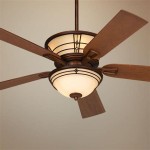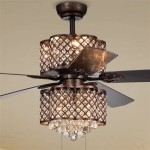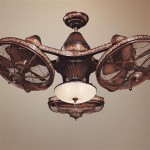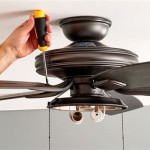Ceiling Fan Oil: What You Need to Know About It
Ceiling fans provide a welcome breeze on hot days and can help circulate air throughout the year. However, like any mechanical device, ceiling fans require regular maintenance to function optimally. One crucial aspect of this maintenance is oiling the motor. Ceiling fan oil, also known as motor oil, is specifically formulated to lubricate the fan's motor, reducing friction and wear, and ensuring smooth, quiet operation. Using the right type of oil and applying it correctly can significantly extend the lifespan of your ceiling fan.
Understanding the Necessity of Ceiling Fan Oil
Ceiling fans are complex machines with multiple moving parts, particularly the motor. As the motor spins, friction naturally occurs between these parts, generating heat and wearing them down over time. Ceiling fan oil acts as a lubricant, reducing this friction and minimizing wear. It creates a thin film over these parts, allowing them to move smoothly without excessive resistance.
Regular oiling has numerous benefits:
- Quieter Operation: Oil reduces friction, leading to smoother operation and less noise.
- Increased Efficiency: Reduced friction means less energy is wasted, making the fan more efficient.
- Extended Lifespan: Properly lubricated parts experience less wear and tear, extending the overall lifespan of the fan.
- Improved Performance: Optimized lubrication ensures the fan runs at its peak performance level, providing the desired airflow.
Choosing the Right Ceiling Fan Oil
Not all oils are created equal, and using the wrong type can actually harm your ceiling fan. Avoid using general-purpose motor oil or household oils as they can attract dust and grime, potentially damaging the motor. Instead, opt for a specially formulated ceiling fan oil.
Here's a breakdown of the types of oil commonly used for ceiling fans:
- Synthetic Oil: Known for its superior performance, synthetic oil is highly resistant to breakdowns and evaporation, offering long-lasting lubrication.
- Mineral Oil: A more affordable option, mineral oil is suitable for most ceiling fans and is readily available.
- Silicone Oil: Ideal for fans in humid environments, silicone oil repels moisture and prevents corrosion.
- Dry Lubricant: Unlike traditional oils, dry lubricants are not liquid. They come in an aerosol form and leave a thin, dry film on the surface, reducing friction and protecting against wear.
Before purchasing, check the fan's user manual. It may specify the recommended oil type and quantity.
Oiling Your Ceiling Fan: A Step-by-Step Guide
Oiling your ceiling fan is a relatively simple task, but it's crucial to follow these steps for safety and optimal results:
- Disconnect Power: Always disconnect the power to the fan before working on it. This ensures your safety and prevents accidental electrocution.
- Locate the Oil Port: Most ceiling fans have a designated oil port, typically located on the motor housing. Look for a small hole or a cap that can be removed.
- Apply Oil: Use an oil can with a thin nozzle to insert the oil into the port. Follow the instructions on the oil bottle regarding the amount and type of oil to use. Over-oiling can attract dust and hinder operation.
- Let the Oil Penetrate: Allow the oil to sit for a few minutes to penetrate the motor's internal parts.
- Wipe Excess Oil: Use a clean cloth to wipe away any excess oil that may have spilled or dripped.
- Reconnect Power: Carefully reconnect the power to the fan and test its operation.
Regular oiling is essential for maintaining your ceiling fan's performance and longevity. By following these guidelines, you can ensure your fan continues to provide a cool breeze for many years to come. Remember to always consult your fan's user manual for specific instructions and recommended oiling intervals.

How To Oil A Ceiling Fan With Pictures Wikihow

How To Oil A Ceiling Fan With Pictures Wikihow

How To Oil A Ceiling Fan

How To Oil A Ceiling Fan Step By Guide

How To Oil A Ceiling Fan With Pictures Wikihow

How To Oil A Ceiling Fan With Pictures Wikihow

How To Oil A Hunter Ceiling Fan In 5 Easy Steps

How To Oil The Hunter Original Ceiling Fan

Ceiling Fan Maintenance Tips For Homeowners Pro Electrician

How To Lubricate Ceiling Fan Wd40
Related Posts








